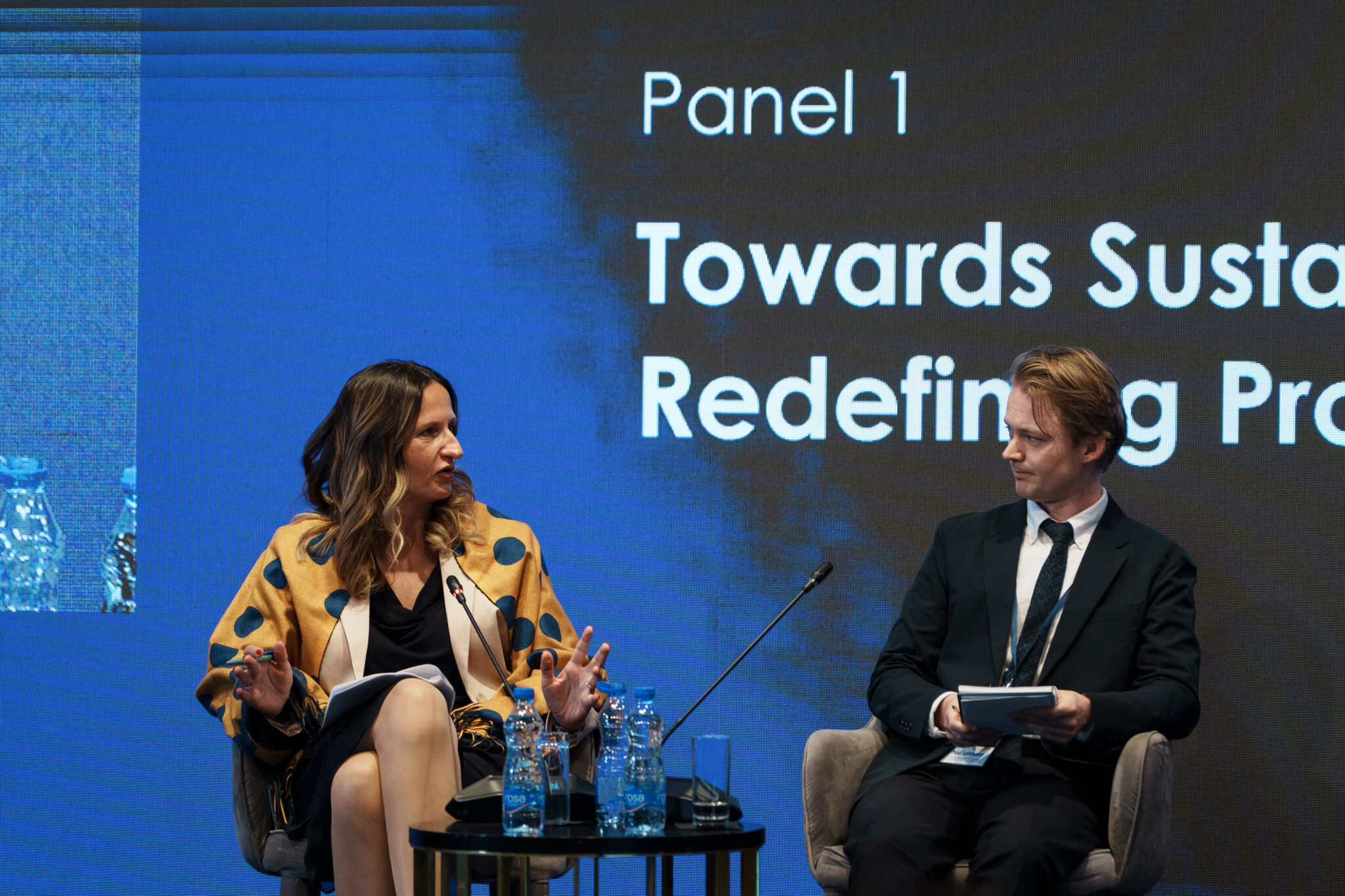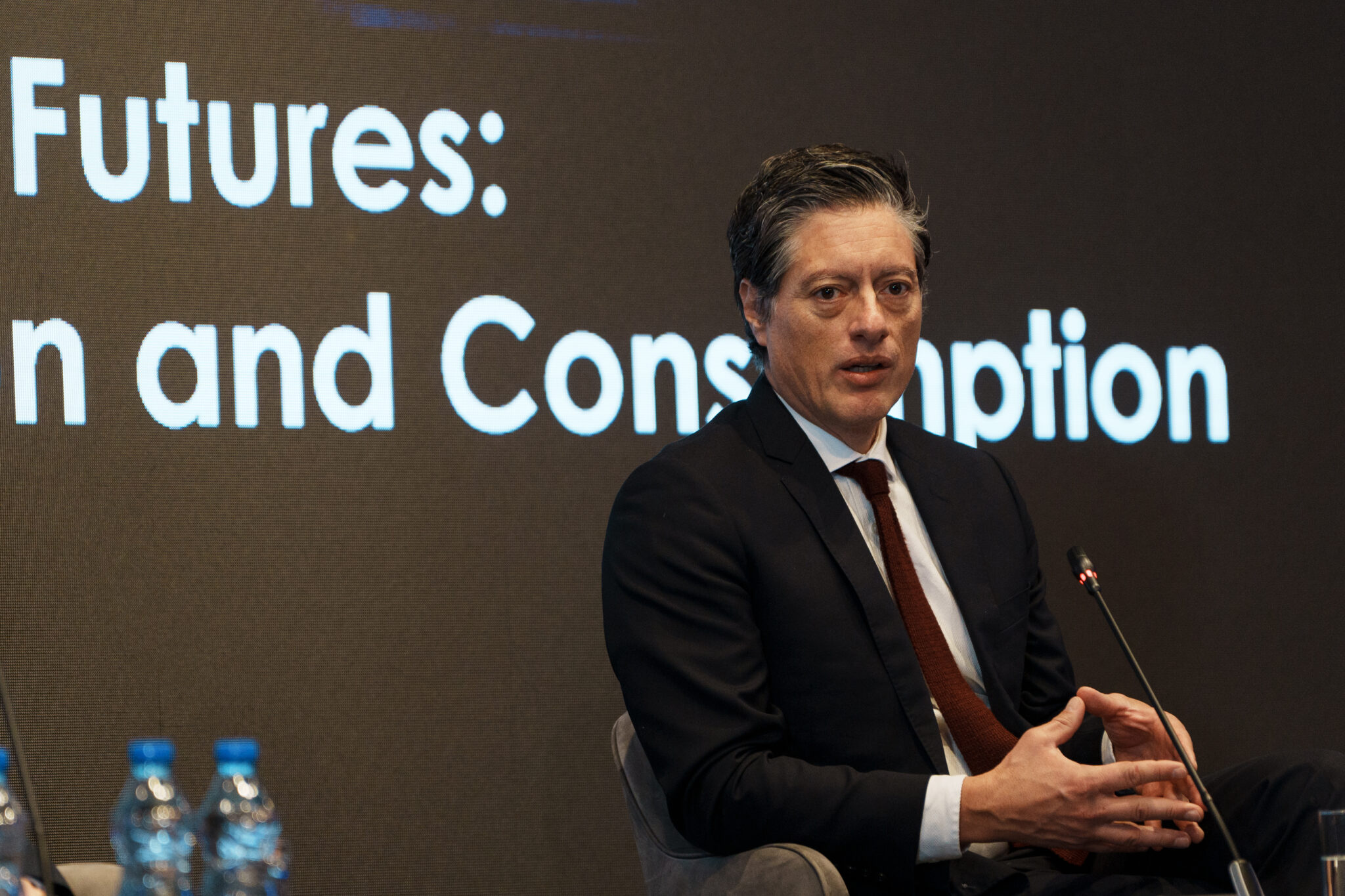SDF2024: Sustainable production and consumption – the key to the green transition
At the recently held Conference on Sustainable Development in Belgrade, experts from various fields gathered to discuss key strategies for improving sustainability in production and consumption.
This topic is becoming more and more relevant in the context of accelerated climate change, growing population and the need to reduce the negative impact on the environment.
Key topic: Circular economy and regenerative agriculture
The panelists agreed that the circular economy and regenerative agriculture are two key strategies that can contribute to the global response to climate challenges. The panel discussion, moderated by Tamara Bullock, director of corporate affairs for Europe and the Americas at Tetra Pak, focused on how these practices can enable a sustainable future.
Jorge Laguna Celisdirector of the One Planet Network (UNEP), emphasized the importance of applying a circular approach in all stages of the value chain, from production to consumption. “Globally, a third of the food produced ends up as waste. To change this, we need to transform the entire system,” said Celis, adding that it is necessary to work on raising consumer awareness and improving infrastructure.
Tijana Koprivica and Ivanka Stojnić
Tijana Koprivicathe director of sustainable operations of Delta Holding, shared concrete examples of how Delta Holding applies the principles of regenerative agriculture. “On our fields, we apply crop rotations, cover crops and other methods that preserve soil fertility and reduce the need for artificial fertilizers,” she emphasized.
Ivanka Stojnicsustainability manager for Southeast Europe at Nestlé, highlighted the role of regenerative agriculture in reducing greenhouse gas emissions. “Agriculture accounts for as much as 24% of global emissions. Our solutions, such as the use of precise technologies such as drones, enable significant savings of resources and reduction of emissions,” said Stojnić.
Challenges and opportunities
One of the main challenges is overcoming financial and regulatory obstacles. Paul Lohmanna researcher from the University of Cambridge, referred to the necessity of political incentives that would facilitate the implementation of sustainable practices. “We need incentives for businesses and consumers to achieve shared sustainability goals,” he stressed.
On the other hand, the panelists agreed that the green transition requires significant investments, but that the long-term benefits are far greater. “The cost of not investing in sustainability is now much higher than investing in sustainable practices,” warned Stojnić.
Concrete examples from Serbia
Significant progress towards sustainability has been achieved in Serbia. Nestlé has launched a regenerative agriculture program on 6,000 hectares with local producers, while Delta Holding uses solar panels and recycles waste to produce biogas. “These examples show how local initiatives can contribute to global goals,” said Koprivica.
Nestlé has invested almost a million euros in these programs in Serbia, and the results are impressive: greenhouse gas emissions have been reduced by 60% per hectare of sunflowers, thanks to the use of technologies such as drones. These technologies enable precise dosing of pesticides and fertilizers, which reduces their negative impact on the environment.
Similar efforts are being made by Delta Holding, which has implemented precision agriculture and renewable energy sources in its processes. For example, Delta uses solar panels to produce 30% of the energy needed for their operations, while rainwater is used as technical water for cleaning and irrigation.

Tamara Bullock i Paul Lohmann
The role of technology in sustainability
The panelists emphasized the key role of innovation and technology in achieving sustainability goals. Precision agriculture, drones and digital platforms enable more efficient use of resources. “Smart tractors and sensors allow plants to be irrigated only when necessary, which significantly reduces water consumption,” Koprivica pointed out.
Innovative solutions are not limited to agriculture. Young entrepreneurs in Serbia are developing products that promote the circular economy, such as ecological insulation panels made from waste packaging. One of these examples is the use of Nestlé packaging to make insulation panels, which have become popular due to their efficiency.
The need for policy change
Panelists pointed out that the regulatory framework often does not encourage sustainable practices. In Serbia, companies that recycle waste still pay high fees for waste disposal, which demotivates small and medium-sized entrepreneurs. “Changes in policy and regulation are key to encouraging sustainability,” Stojnić emphasized.
Examples from other countries, such as France, where laws encourage the redistribution of food before its expiry date, can serve as a model. In South Korea, a law requiring households to pay according to the amount of organic waste thrown away has proven successful in reducing food waste.

Jorge Laguna Celis
Urgency of action
The panel ended with an appeal for immediate action. Jorge Laguna Celis pointed out that while there is still a window of opportunity to prevent the worst consequences of climate change, time is running out. “We need to change the way we think and act, from local communities to global policies,” he said.
All panelists agreed that change starts with the individual. “It all starts in our refrigerators. Reducing food waste is the first step towards a more sustainable future,” Celis concluded.
Source: bizlife.rs


